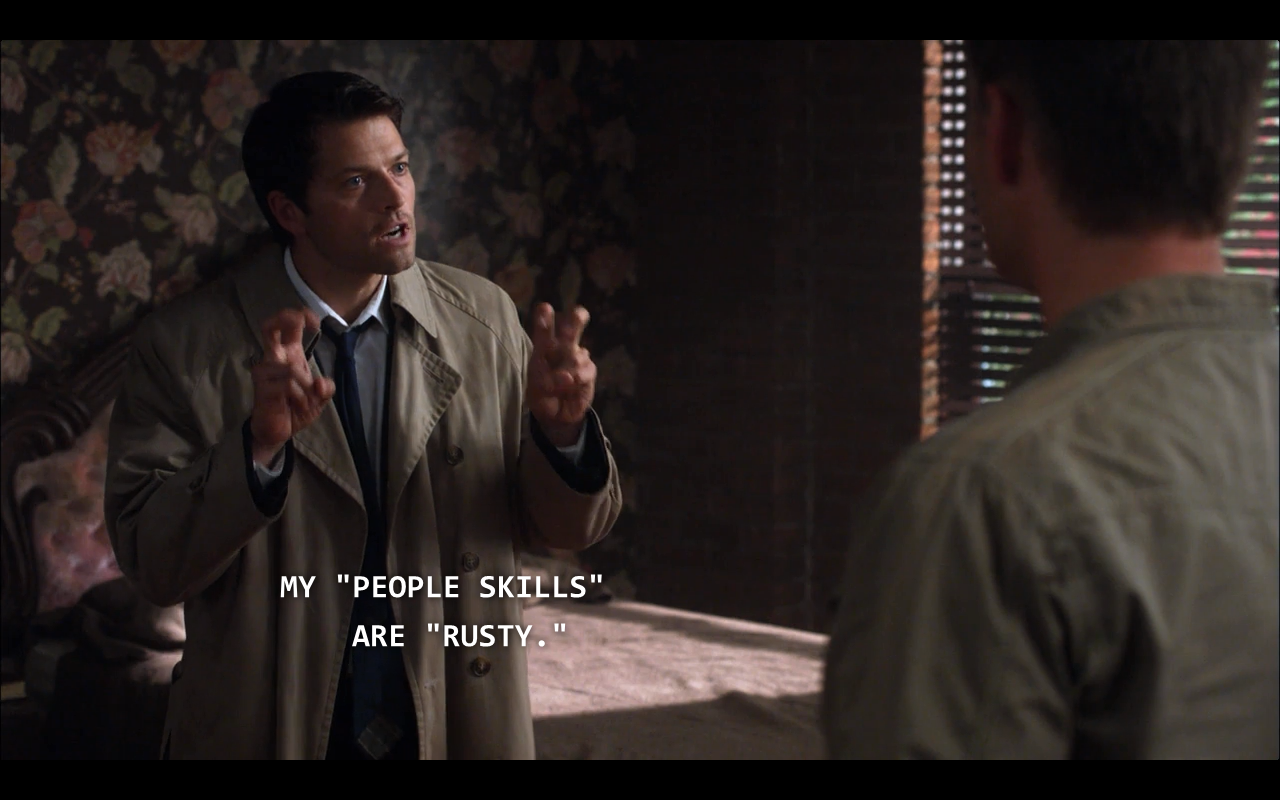The introvert experience
To preface this piece, the concepts of introversion, extroversion, and even ambiversion are loose at best and driven by the deep human need to categorize and explain. They’re just a convenient shorthand, like most labels. But, generally, there are some us who simply enjoy and crave social interaction and there are some us who … don’t. It’s important to remember, even as I focus on the introvert experience, that it truly takes all kinds to make the world go ‘round.
I’m pretty firmly set up in the introvert camp. I need a lot of down time after big social interactions and I’m most comfortable with just my small group of friends. I also have quite a few creative outlets which fulfill my needs for self-expression, and I do better listening and watching in group settings rather than actively participating.
I’ve also struggled with social anxiety over the years, and even though that’s not exactly an introvert trait, I think as the world gets louder around us and we’re consistently fed the message that the most successful people are the most outgoing and sociable, it can be difficult for some introverts to engage with that or meet that expectation, creating anxieties. Many workplaces are also looking for those “people skills” that mark someone as easy to work with or a good cultural fit, which social anxiety can get in the way of, especially when it comes to first impressions.

Creativity and introversion
In my experience, creativity and introversion often go hand in hand. I think this has a lot to do with the fact that we aren’t expressing ourselves socially as much, so many of us feel the need to find expression in other ways. This manifests in hobbies and interests, or even careers, that focus on creative output. I know I feel at my best when making something, whether that’s a loaf of French bread, a blog post, a beautiful photo, or a piece of embroidery, with ample time and quiet to do it in.
The creativity required in marketing is both heaven and hell for introverts. Many of us prefer to work alone, but marketing requires a great deal of collaboration. Collaboration within your creative team, with your media people, with your client, and more. Having a door to close, or a laptop to escape with to do your thinking can be really beneficial and can help balance out the team aspect of the work. Be honest about your needs too. If you need time to think things through before a group meeting or need large chunks of time for tasks rather than having it split up over days, ask for it. Your employer wants your best work, so make sure you have what you need to produce it.
The best part about the creative side in marketing is really getting the chance to see my ideas come to life in ways I couldn’t accomplish on my own. And, generally, just having a job where my ideas and thoughts matter so much. Even though it doesn’t always feel like it, marketing is really a world where different ideas are appreciated, even if you don’t get to follow through on them.

Creative people, and introverts, also have a tendency to live in their heads with busy minds and thoughts that don’t always align with the group. Just because we don’t want to ruffle feathers doesn’t mean we aren’t here for quiet revolution and going against the grain. I’ve learned to actually speak up more in meetings because ideas that seem obvious to me are sometimes things that others have never even considered.
Introversion as a secret superpower in marketing

At work and in marketing specifically, overthinking and a unique perspective on the world can be harnessed for good – I would go so far as to call it a superpower.
Anyone who sees the world differently whether through experience or design (such as being neuro-atypical or otherwise neurodiverse) kind of automatically has this superpower. This includes introverts. We spend a lot of time thinking, listening, observing, imagining, and planning. We often see the world from one or two steps back, which can give us incredible perspective that others simply may not see.
In marketing specifically, this kind of perspective is so important. You’re often working with clients who are very knowledgeable and particular about what they do, but marketing to an audience who may have zero prior experience with the brand. There’s a communication gap to bridge there, and introverts are poised to help by bringing their strong observational skills to the team.
As a writer, I often find myself in client meetings spending the majority of my time just listening and taking a few notes. This is how I best process information in a meeting as an introvert and with my particular learning style. I’m noting down words and phrases from our client that stand out to me, or are repeated, or that I have questions about, and already thinking ahead to how to use these or where they can best be applied. I prefer, when possible, to ask follow-up questions over email because it allows for more thought and detail on both ends.
Introverts have a valuable perspective to offer. You’ll find that the more comfortable you become offering your thoughts to the group and being unafraid of how different those thoughts might be, the better your ideas will be received and appreciated. You may think that what you have to offer might be “obvious” but there’s a really good chance that if no one has said it, it isn’t obvious at all.
Why is marketing a good fit for introverts?

I think all of the above makes marketing a really good fit for introverts. We have a different perspective, strong observational skills, and often some really excellent creativity in want of an outlet. Even though Phoenix Group, and a lot of marketing positions elsewhere, are ultimately teamwork focused, there’s also a lot of good time to work and think independently.
Another thing that might interest introverts about marketing is the opportunity for continual learning and study. The world of marketing is always changing, so there’s consistently something new to read or learn about, or another way to quietly and productively occupy your time.
Marketing can also be really challenging, which can appeal to an introvert’s need for an outlet. It can be so satisfying to solve a problem for a client or come up with an idea that proves to be incredibly powerful and effective. Sometimes the challenge is in the revisions stage and trying to get something just right. I think introverts are especially skilled at the kind of re-evaluate and retreat work that this can take, as the idea of stepping back to come out stronger than before is exceedingly familiar to us.
What are the challenges of working in marketing as an introvert?
As I mentioned before, the teamwork aspect can be a challenge for introverts. There are lots of meetings and in-person (digital or otherwise) communication, as well as simply being part of something that is much bigger than just your role in it.
You will also be expected to be a fairly strong communicator in all ways, no matter your job title. Luckily if you aren’t inherently good at this, communication is a skill that you can learn and practice to become better at. It’s important to remember that if you’ve been hired into a position, everyone already thinks you have the chops for what you’re doing, so trust that this is true and move forward accordingly by voicing your thoughts and opinions.
Like many fields, marketing will still often rely on older methods for things like brainstorming, or even how you manage your day-to-day work. These aren’t always introvert-friendly, and yes, in many cases you’ll need to just learn to manage. But I think the global push for better diversity and the challenges navigating the COVID-19 pandemic have actually helped improve things on this front and not just for introverts, but for anyone who finds a traditional office environment difficult or exclusionary.
What can change in marketing to help introverts shine
Here are a few things that I think can help not just introverts shine, but everyone in the world of marketing.
Allow for flexible working conditions
Sometimes I’m just people-ed out, but otherwise fully capable of doing my job. Being able to grab my laptop and work from anywhere (like my couch) makes me more productive and reduces the use of sick or wellness time. The office environment, especially if you have open-plan desks, can sometimes be too much for those of us who need to limit interactions to be our best. This is something I think many companies have learned during work from home orders – some people thrive outside the office, and so many jobs can really be done from anywhere with an internet connection.
Change how you brainstorm
Traditional brainstorming sessions are limiting and don’t make enough room for everyone to participate. Again, this doesn’t apply just to marketing, but to every business that makes a habit of brainstorming. Moving to the use of Rapid Idea Generation (RIG) sessions or similar open up brainstorming to everyone and make sure that all voices are heard – even the quiet ones. I wrote a comprehensive guide on RIG sessions and why they’re a vast improvement over the traditional brainstorming format and you can read it right here.
Build in buffer time around meetings
As an introvert at work there are two things that I love to see in my schedule – time for meeting prep and some flexible time after meetings. Most meetings have some sort of information or documents that will be gone over, and if these are available in advance, I want to see them in advance. This gives me time to think and reduces the feeling of being put on the spot in a meeting where you’re faced with brand new information and are expected to start sharing questions or ideas. I think this extra time is helpful for everyone, but especially good for introverts who enjoy being prepared. Introverts also need some cool-down time after a lot of meetings, especially long ones. A bit of flexibility in my schedule is all I need to allow a quick tea break and personal regroup after needing to be “on” for a meeting. I can feel burnt out after a big meeting but a bit of quiet time by myself can get me back up and ready to work and also help me process what was gone over in the meeting itself.
That’s it! Three completely achievable things that can make working in marketing more introvert friendly. Like everything, marketing is a world that needs all different types of people to truly be impactful and effective, so look around and what you’re doing to see where you can be a bit more inclusive of us quiet folks.



